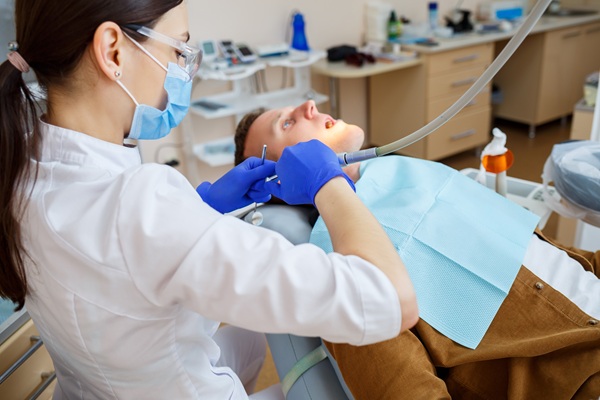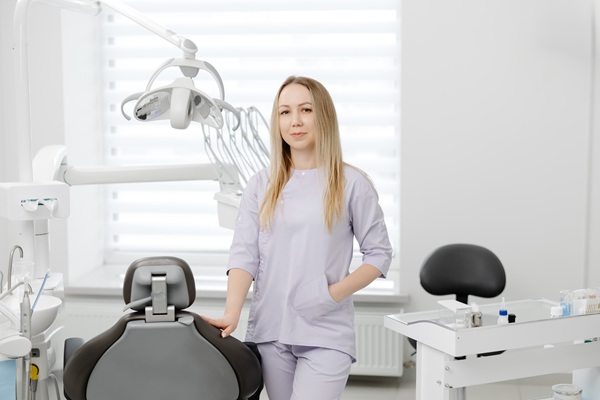Call An Emergency Dentist if You Break Your Jaw or Have Other Dental Issues

At some point in most people’s lives, they require the services of an
emergency dentist. Unfortunate accidents, the onset of a tooth infection or even a severely bitten lip can lead to an emergency trip to our dentist office. While many home remedies and old wives tales exist about dealing with a dental emergency, a medically trained emergency dentist may disagree with many of these remedies. We recommend that you make your way to the dentist office as soon as possible. Based on circumstances, you may not be able to get to us right away so here are a few steps you can take in the meanwhile, for common dental emergency situations.A broken jaw requires an immediate trip to the
emergency dentist, or an emergency room if you have other physical damage that needs to be looked at. A broken jaw has very clear symptoms which include facial swelling, difficulty opening your mouth very wide and severe pain. You also experience bleeding from the mouth, lost or damaged teeth, and your jaw could appear abnormal. With any of these symptoms, you should immediately control the swelling using a cold compress. Next, using a small towel, stabilize the jaw. You can do this by placing a towel under your chin and tying it around the top of your head. This will keep the jaw in place while you make your way to our office. With this emergency, it is imperative that you make it to the emergency room or our office immediately.More common than a broken jaw, is a chipped or knocked out tooth. Both can require the treatment of an emergency dentist and both can be quite painful. If you have a chipped or broken tooth, you should make sure to clean your mouth. Do this by rinsing with warm water. Place a cold compress on the area to reduce any swelling. This will also help with local pain then call our office to schedule your visit. If the tooth has been knocked out completely, you will still need to clean your mouth by rinsing with warm water. Pick up the tooth by the crown, avoiding touching the roots, and store it in a saline solution or in milk. Keeping the tooth moist and reducing the damage to the root, by not touching it, can help increase the chances of it being reattached. If possible you should place the tooth back into the socket and hold it in place with your other teeth or tongue. If it is too painful, the milk or saline solution will work temporarily.Perhaps the most common reason people seek out an
emergency dentist is a toothache. Typically a toothache is caused by something being stuck between the teeth or an infection. To rule out something being stuck between your teeth, rinse your mouth with warm water and gently floss around the painful tooth. Should you find something, and cannot remove it, give us a call. Do not use a sharp or metal object to try and clear it. More commonly, however, toothaches are caused by an infection, which will need antibiotics or dental restoration in order to remove it. Call our office immediately to ensure that the infection does not spread and that you can get treatment started as soon as possible.
Recent Posts
Asking an emergency dentist for their advice whenever a dental emergency is experienced is something everyone should do. A dentist who offers emergency dental service is someone who knows the essential steps to take for any type of dental emergency. These first steps are a crucial part of ensuring successful treatment of the emergency situation.…
Knowing when to seek emergency dental care can be tricky. While many dental issues are extremely time sensitive, others can be left for months with little risk.Some tooth problems, like cavities, are slow to change. If there is no pain and the dental issue is not the result of trauma, usually treatment can wait until…
General dentistry focuses on routine oral health care for patients of all ages. This includes oral maintenance such as cleanings and examinations, as well as general treatments and preventive care. Preventive care often gets overlooked as it relates to general dentistry, however, it plays a key role in oral health. Keep reading to learn more…
General dentistry is a form of dental care where practitioners provide a variety of services. Patients who see a general dentist receive preventative services to help maintain good oral health and prevent disease or damage. In addition to preventive services, general dentistry also includes restorative services and cosmetic services.Dental health is essential to a patient's…
 At some point in most people’s lives, they require the services of an
At some point in most people’s lives, they require the services of an
